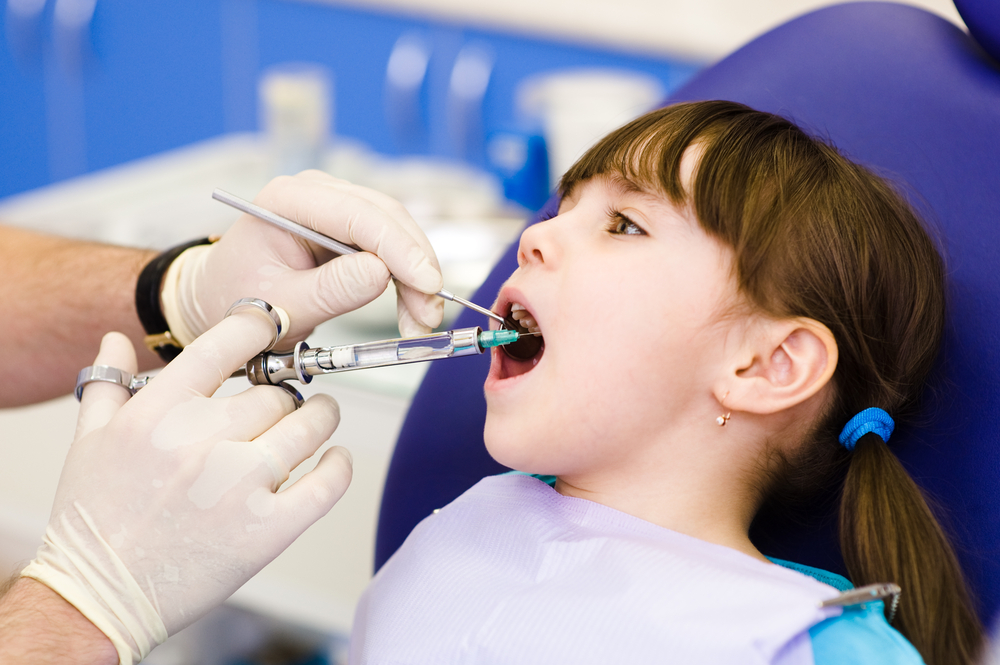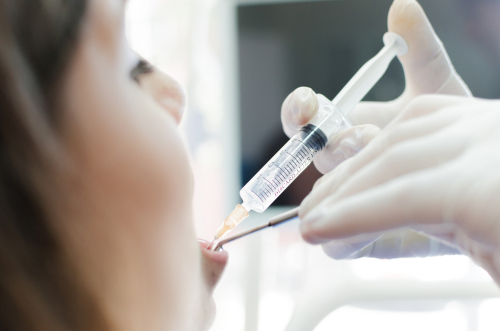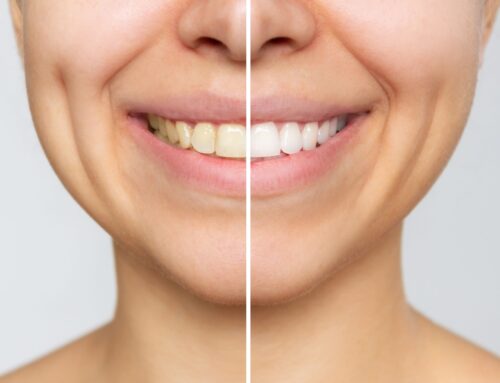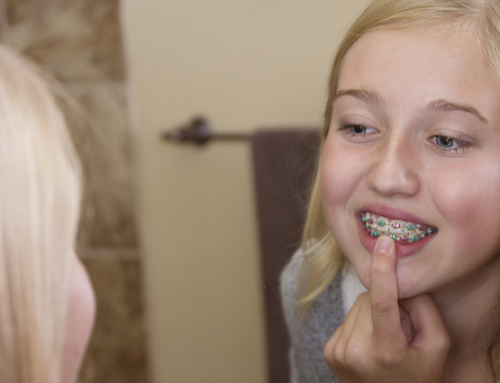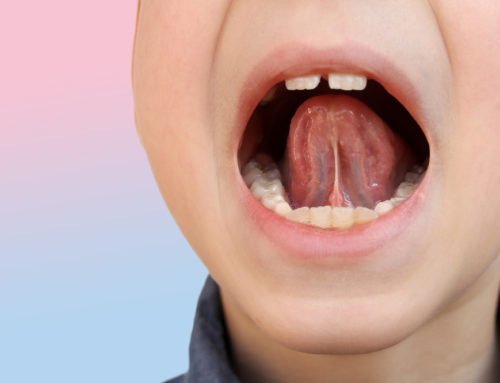Articaine vs Lidocaine for Pediatric Dental Procedures
Taking your child in for their first major dental procedure can definitely be stressful. Both you and your child may have some questions about the process. Fortunately, here at Snodgrass-King Dental, our staff is more than happy to offer some answers. After all, that’s what we’re here for. You can always call or ask your questions during your next appointment.
For now, however, we’ve got another handy blog to help you out with some common dental info.
Local Anesthetic
Today, we’re going to talk about local anesthetics — specifically, two popular anesthetics called articaine and lidocaine.
Let’s start off with some basics. What is a local anesthetic?
A local anesthetic is a medicine that’s meant to numb a specific part of the body, preventing you from feeling pain in that region. In this case, we’re specifically referring to dental procedures, so the anesthetic would most likely be delivered to the mouth, gum, or jaw area. In a dental context, the medicine is often delivered via injection.
Why Might You Need A Local Anesthetic?
More extensive dental procedures such as tooth extractions, root canals, or crown placements may be painful. That’s why dentists and doctors often use a local anesthetic before cutting or drilling into a sensitive area. Numbing not only prevents you from feeling pain but also helps you relax and stay still during the procedure.
Local Anesthetic Vs General
Aside from local anesthetic, there is also something called general anesthesia. Unlike a local anesthetic, general anesthesia affects almost your whole body. It’s meant to put you in a sleep-like state where you don’t feel any pain or discomfort.
Generally speaking, local anesthesia is a lot more common when it comes to dental procedures. This is because general anesthesia is simply not necessary for most dental treatments. A local anesthetic is more than enough for most tooth extractions and fillings. Additionally, general anesthesia is typically a more complex procedure that carries more risk.
Articaine Vs Lidocaine
Both articaine and lidocaine are excellent options for local anesthesia. Lidocaine is a slightly more popular choice in the US at the moment, but articaine is now widely used as well. In fact, in some European countries, articaine is the first choice for local anesthetic.
According to some research studies, articaine appears to be more potent than lidocaine. Having said that, lidocaine has been around in the US since the 1940s and has become somewhat of a “gold standard.” In contrast, articaine was only approved by the FDA in 2000.
Allergies
Although it’s rare, patients can be allergic to a local anesthetic. For cases such as these, your dentist may recommend an alternative anesthetic. That is why it’s good to have a variety of options when it comes to painkillers. Patients with allergies or a medication conflict may need a local anesthetic that’s not lidocaine. Always make sure to let your dentist know of any allergies that you have.
Pregnancy
If you are pregnant or attempting to conceive a child, it’s very important to let your doctor or dentist know about this before you are administered any drugs. A dentist can help you select a local anesthetic that has minimal effect or risk to the child. Please keep in mind that you should still go to the dentist when you are pregnant. It is particularly important to do so, in fact, since you need your teeth in tip-top shape to get all the necessary nutrients.
Last Notes
At the end of the day, both articaine and lidocaine are excellent local anesthetics. Your dentist will most likely recommend an anesthetic they think is a good fit for you.
If your child tends to have anxiety at the thought of going to the dentist, you should definitely mention that to your pediatric dentist. Many children are anxious during procedures like this, and it’s completely normal! If the anxiety is particularly bad, some dentists choose to administer a little laughing gas to relax the patient.
Here at Snodgrass-King Dental, our staff is highly trained and offers great care. Not only do our dentists have years of dental experience, but they also have experience working with children. This way, they’re as equipped as possible to meet the needs of you and your child.
Frequently Asked Questions
We hope that this article has been helpful to you. Just in case, however, here are a few more answers to commonly asked questions.
What Is A Pediatric Dentist?
In short, a pediatric dentist is a dentist that specializes in treating children’s teeth. Going to a pediatric dentist ensures that your dentist has had additional training in working with children. This comes not only in the form of additional medical training but also empathy. Working with young children can come with some additional challenges that adult dentistry may not have. For example, children may need additional emotional support and care.
How To Choose A Pediatric Dentist?
There’s no doubt that finding the right pediatric dentist for your child is important. Here are a few tips and tricks that can help you make this decision:
Qualifications – Does the dentist have the correct qualifications and dental training? Remember that a general dentist isn’t the same thing as a pediatric dentist. Feel free to ask your dentist about their educational and training background.
Word Of Mouth/Reviews – What do past patients say about the dentist? Do you know someone that has been to their dental clinic? Google or Yelp reviews can be a good place to look as well.
Insurance – One of the more practical things to keep in mind is what insurance you have. There’s a pretty good chance that not every dentist will accept your insurance. Before getting any procedures, check that this dental clinic is “in-network” for you. Otherwise, you may end up paying higher out-of-pocket costs than you need.
Last but not least, don’t be afraid to do a little online research. Word of mouth is always a great way to find a doctor, but it’s not the only way. These days, a single Google search can bring up a dozen dentists within driving distance.
Can You Drive After A Local Anesthetic?
If you’re planning on getting a dental procedure at your next appointment, it’s always best to ask your dentist whether or not you need someone to drive you home. Although a local anesthetic will likely not prevent you from driving, everyone is different. If your dentist recommends that you not drive yourself home after the procedure, make sure to plan ahead and get a driver.
Of course, if you’re uncomfortable driving after your procedure or think you might be distracted, you could always opt to get a driver.
How Long Does Local Anesthetic Last?
Every anesthetic is different. For example, Colgate states that it takes an average of “30 to 60 minutes for the numbness to go away” after dental work (referring to articaine). The exact time range varies greatly from person to person and the anesthetic being used.
Can You Eat Before Local Anesthetic?
In most cases, local anesthetic is only be applied to your mouth area. In this case, eating is usually fine. Having said that, if you are getting general anesthesia, you may need to fast. The best way to know for sure is to ask your dentist. They’ll be able to tell you if you should abstain from any foods or liquids prior to the procedure.
Pediatric Dentist Tennessee
Looking for a pediatric dentist in Middle Tennessee? We’ve got your back! Whether you’ve just recently moved here or are simply looking for a change, Snodgrass-King is a great option. We offer all kinds of services for children — everything from sealants and fillings to crowns and wisdom tooth extractions.
The best part is that you can come in for your check-up while your child sits down for theirs. Yes, we offer both pediatric and adult dental services. Our office can perform procedures such as root canals, tooth extractions, crown placements, whitening, and much more.
Have questions about our office or services? Don’t hesitate to give your closest Snodgrass-King dental office a call; we’ll be happy to hear from you.
In the meantime, however, remember to check out our Tooth Talk Blog. We’ve got some fantastic articles featuring all kinds of dental topics. You can also find forms, insurance information, new-patient specials, and other great resources on our website. Just click around!


